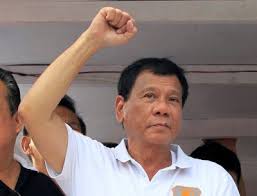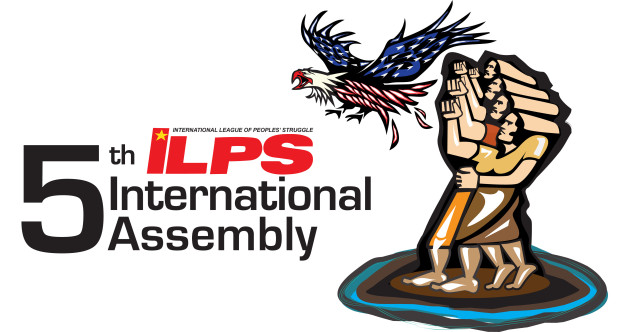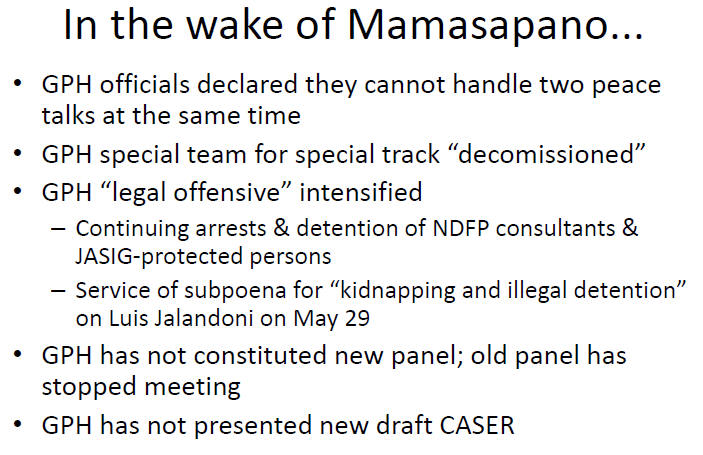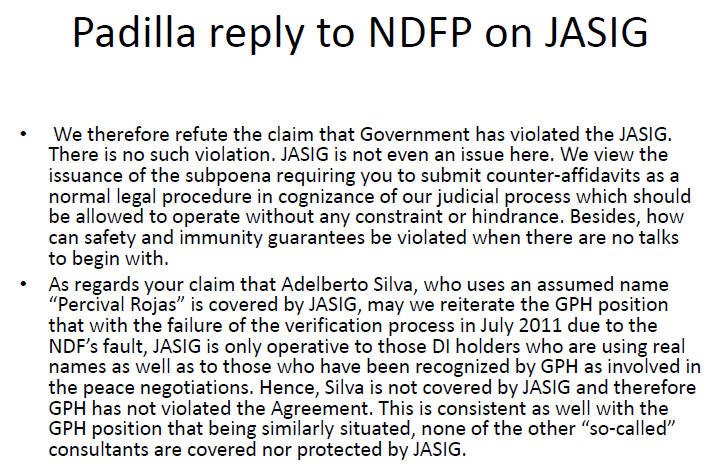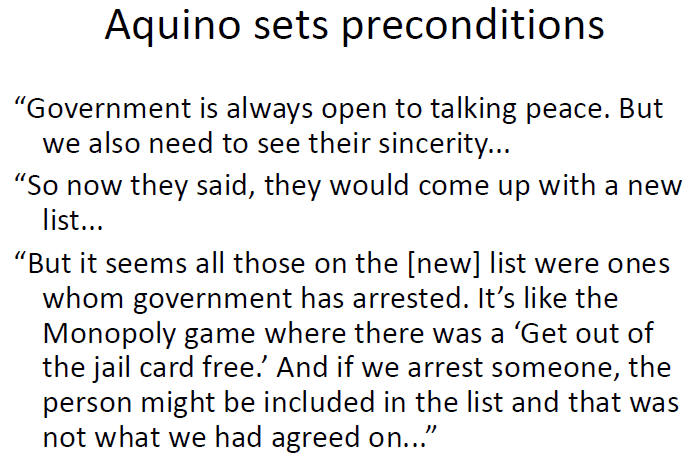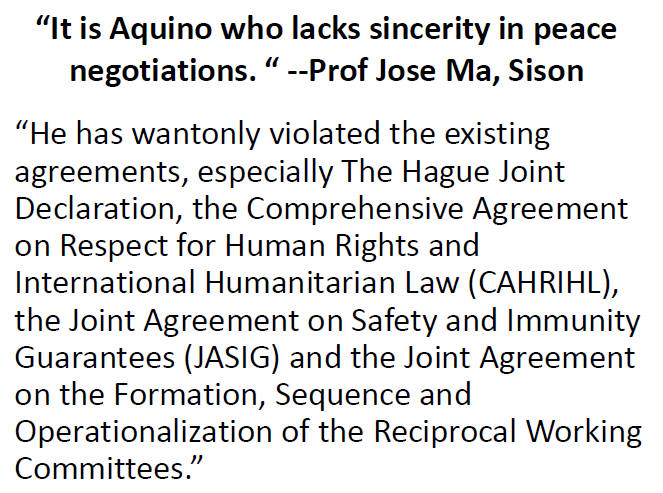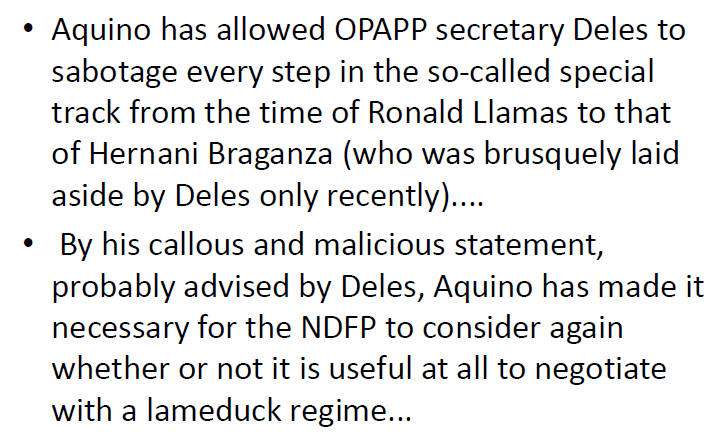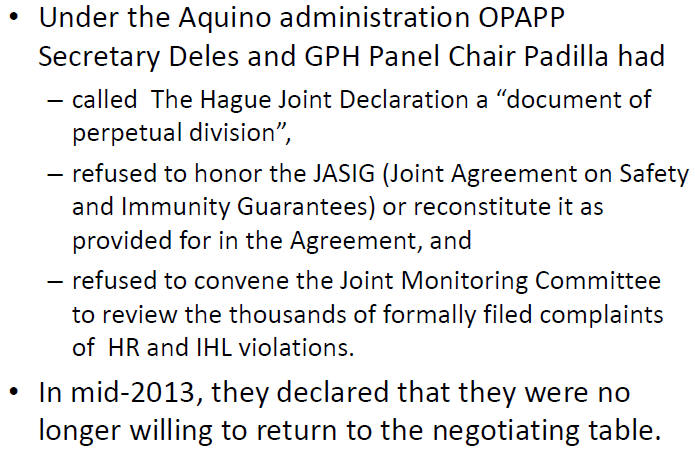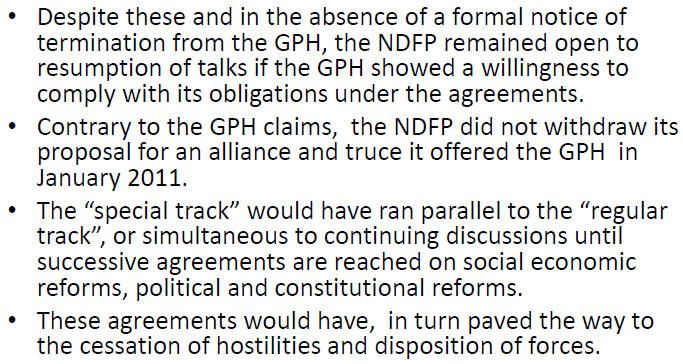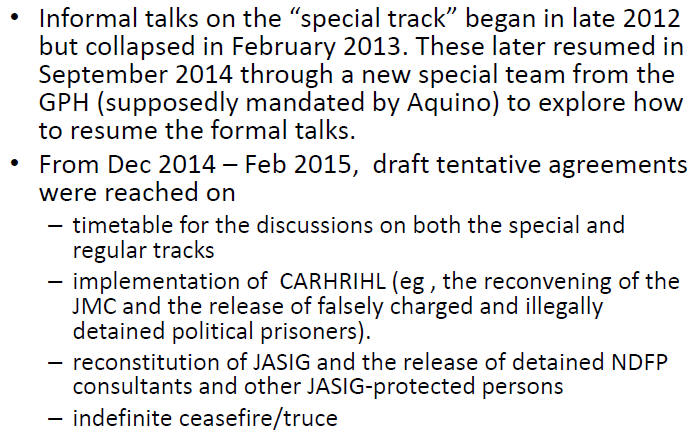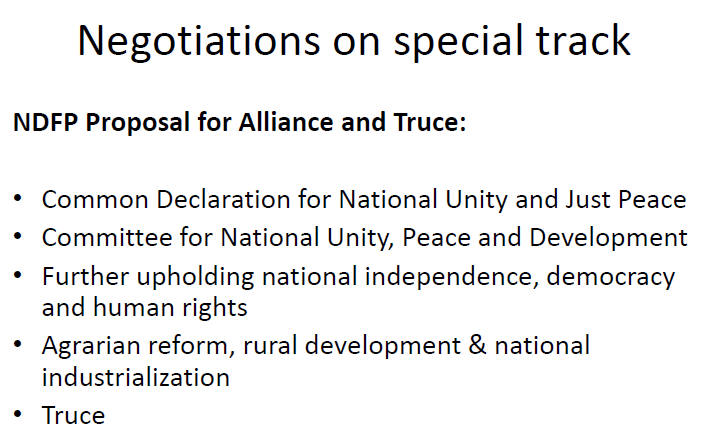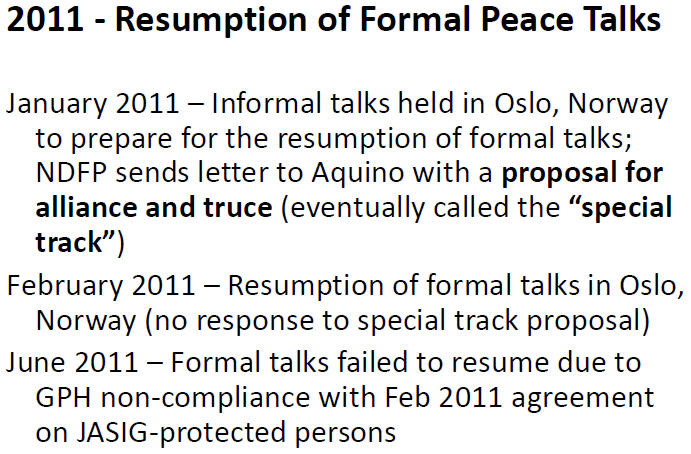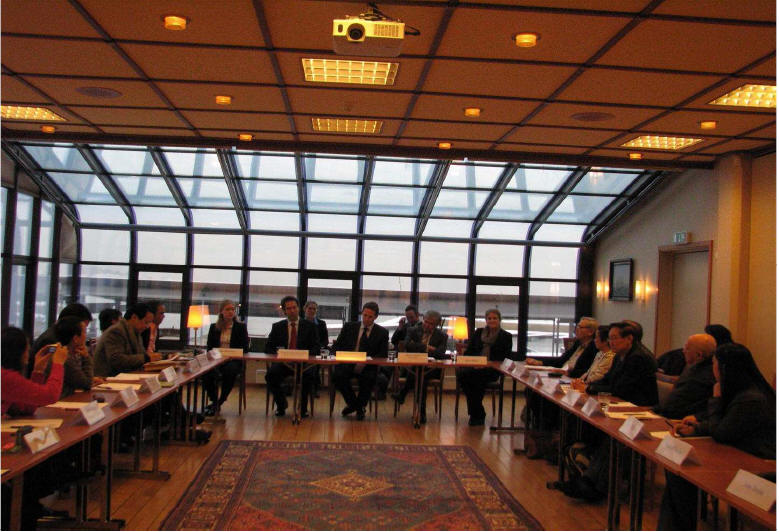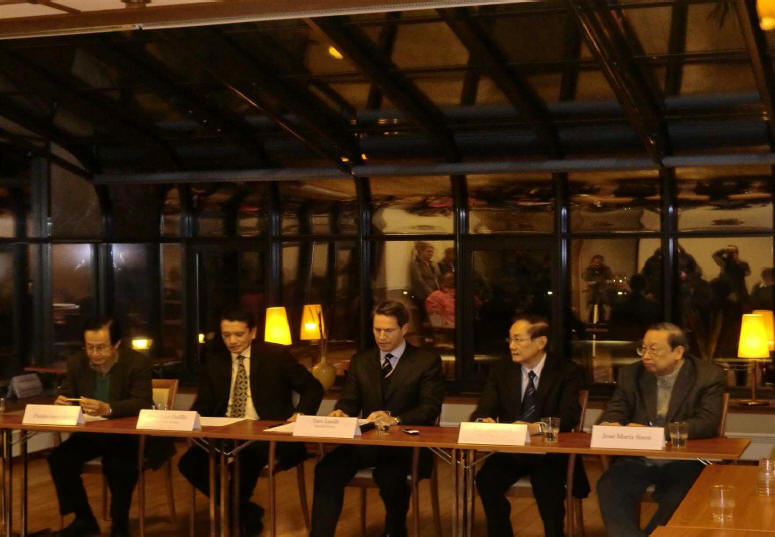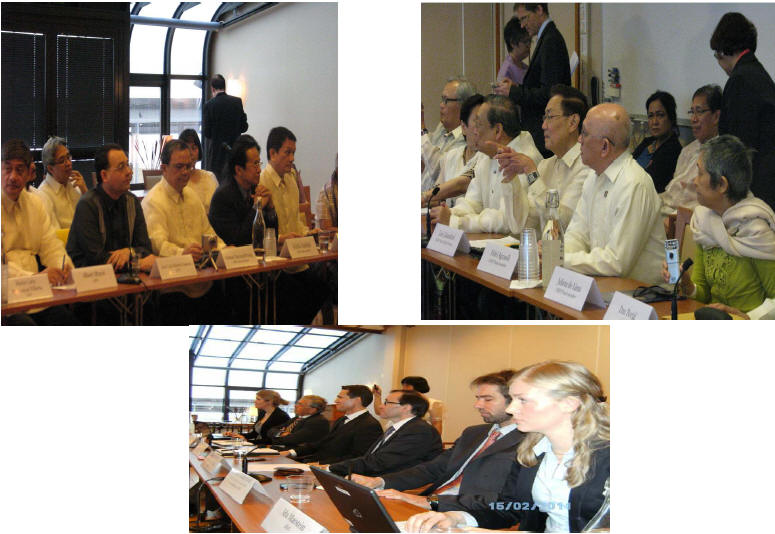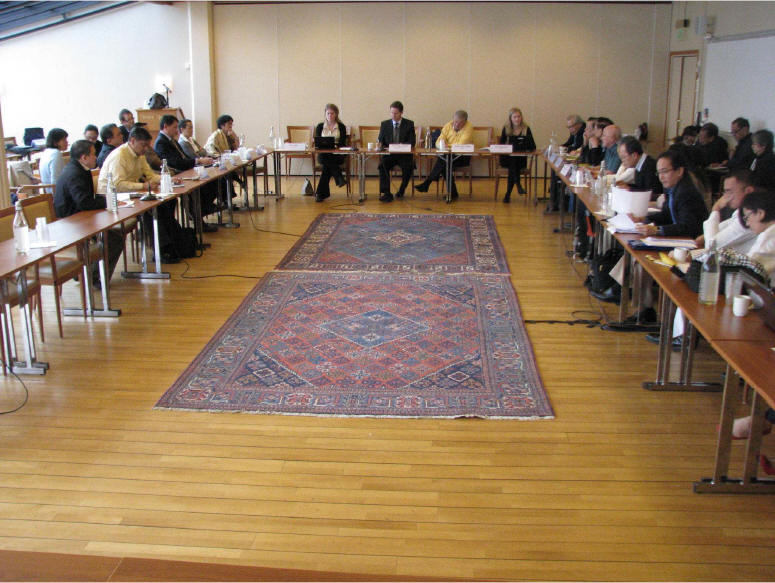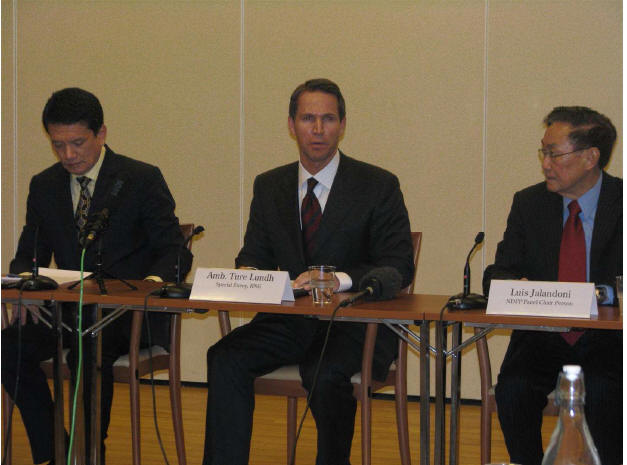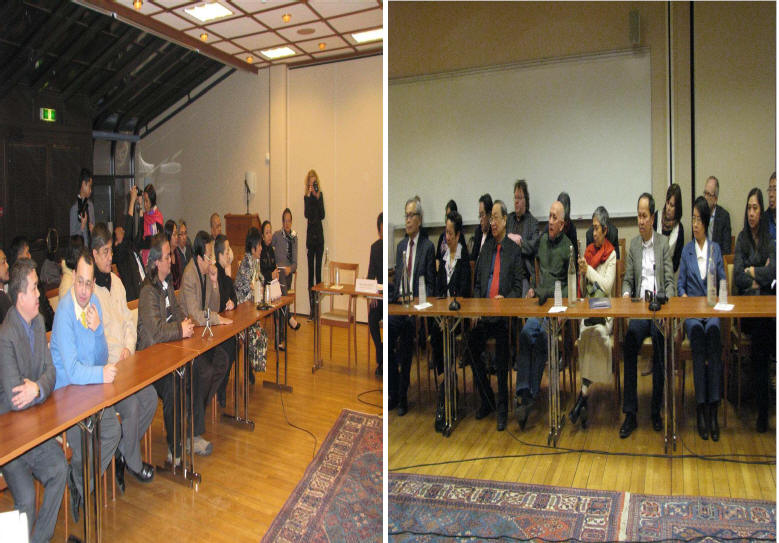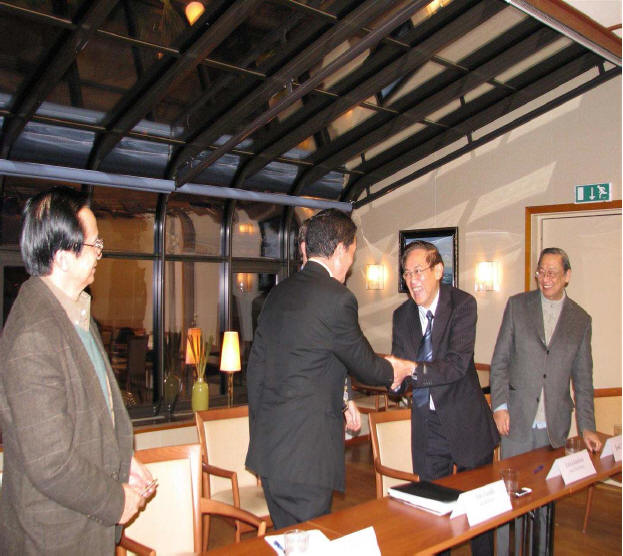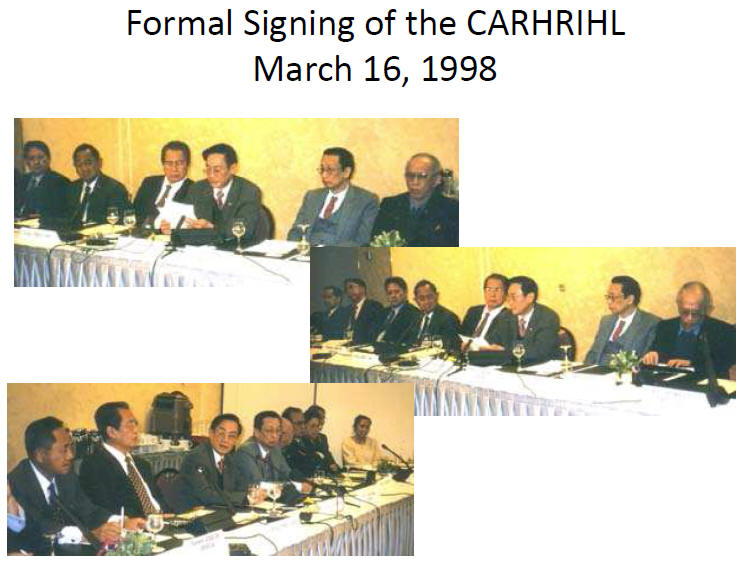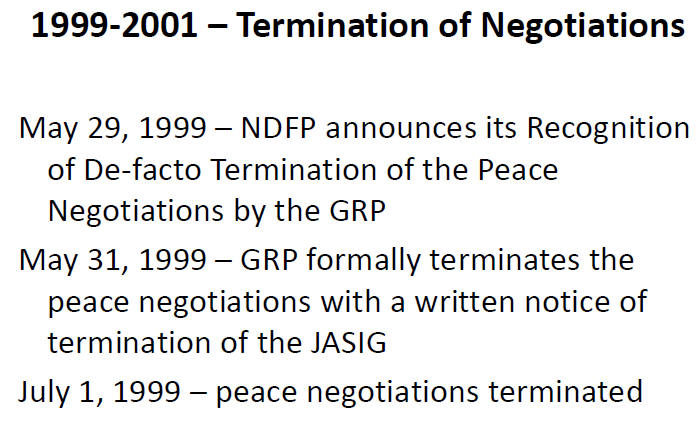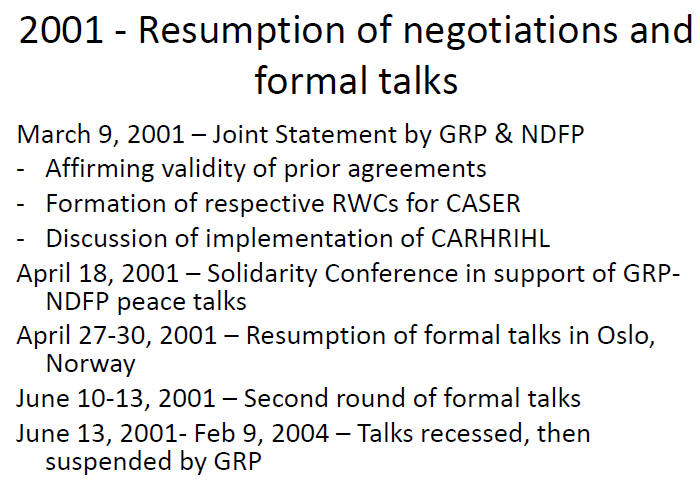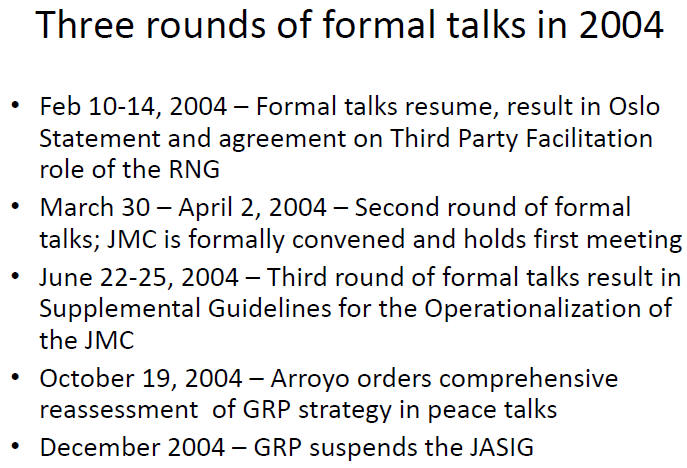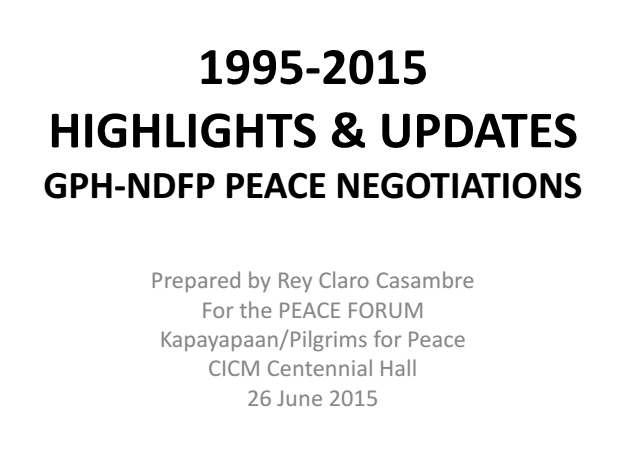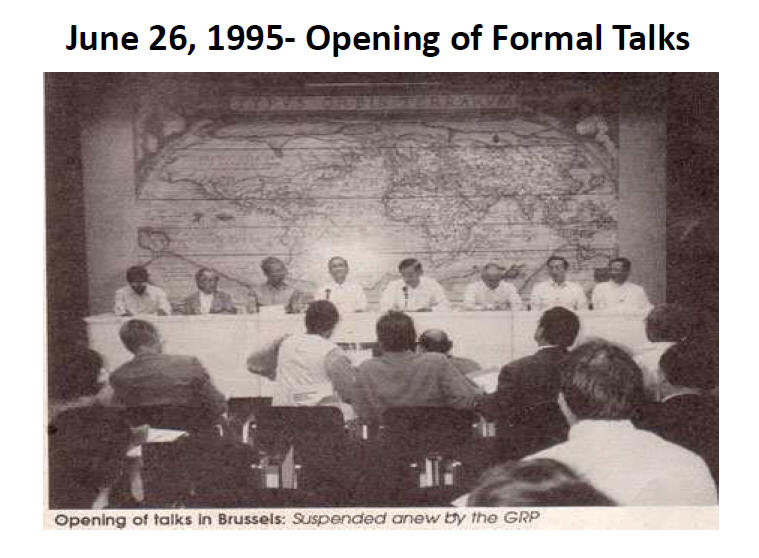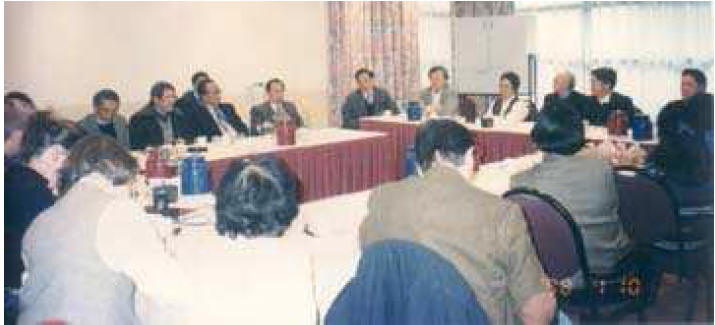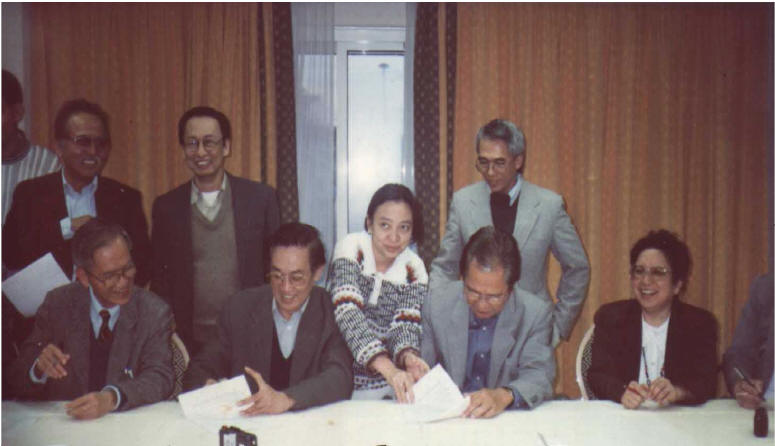by Rey Claro Casambre
Philippine Peace Center
Perhaps the most unexpected, yet most significant, outcome of the Duterte presidential campaign is the return of the peace negotiations into the national consciousness and discourse. To his credit, Mayor Rodrigo Duterte was the only presidential candidate who made the resolution of the armed conflict through peace talks a major pillar in his platform.
While having far-reaching implications, it is also the least contentious of his propositions. If his more eagerly received claims of eradicating corruption, drugs and criminality are tainted by his questionable methods, spotty human rights record, and ribald humor and remarks, the only controversial element, if at all, to his peace-making credentials is his known ties with the New People’s Army (NPA) highlighted by his unabashed and repeated declarations that he is a Leftist and Socialist.
These have undoubtedly generated new optimism that the talks, which had barely advanced since 1998 when the CARHRIHL was signed and drafts of the CASER were exchanged formally, would get a new boost under Duterte’s presidency and move it farther than any of his predecessors had.
No one saw it coming. Four months before he would announce his candidacy, Mayor Duterte called CPP founding Chairman Prof Jose Ma Sison by phone and asked the latter if he would come home in case he, Duterte, became President. What made the call extraordinary was that no other prospective presidential aspirant would ever divulge at the outset his or her connections with the CPP -NPA-NDFP. Furthermore, Duterte (unknown then to Prof. Sison) had arranged for the conversation to be heard by his audience in a forum composed largely of AFP officers.
During the campaign, and especially at the homestretch, Duterte repeatedly and unequivocally declared that the only way to stop the armed conflict was to hold peace talks with the Moros, including the BIFF, and with the CPP-NPA-NDFP. More importantly, Duterte stressed that there could only be peace if historical injustices are corrected and the roots of the armed conflict addressed.
After it had become clear that he would sit as the next President of the Republic, Duterte reiterated he would resume the formal peace talks with the NDFP, which had bogged down since 2011 due to the insistence of the Aquino government on changing the framework or foundation agreement and its refusal to honor the other bilateral agreements entered into by previous GRP/GPH administrations, notably the CARHRIHL and the JASIG. There was talk of Duterte’s visiting the NDFP leaders in Utrecht after he meets with the Pope, before his inauguration, and of Prof. Sison’s coming home
Only a week after elections, the Duterte camp had issued several statements reiterating its intention to resume formal talks with the NDFP, naming the Peace Adviser and the head of the negotiating panel with the NDFP, and declaring that political prisoners would be released as a goodwill measure to pave the way to the resumption of talks. Duterte went one step farther by pointing out frankly that while he would become “the enemy” the moment he takes his oath or office, he was offering the communists his hand for peace, along with government positions in such agencies as the DOLE, DSWD, DENR and DAR. The CPP and NDFP warmly welcomed the offer and said they would recommend competent non-communists to fill the posts, even as they explained they could not join the GPH government except as a result of successful peace negotiations.
While all these augur well for the peace process, it is important at the same time to keep one’s feet on the ground and guard against unrealistically high expectations that would only cause cynism once unrealized. Starting with Cory Aquino’s in 1986, incoming administrations have invariably called for peace negotiations, not the least because it was important to maintain stability and build hope in a society seething with discontent, misery and despair wrought by the previous regimes. And with the exception of the Ramos term when most of the major bilateral agreements were signed, the peace talks quickly got bogged down and were even terminated during Estrada’s term.
Duterte now has Ramos behind him who could serve as an adviser on the peace process, among others. He has tapped Jesus Dureza to head the OPAPP and Silvestre Bello as head of the GPH panel negotiating with the NDFP. Both Dureza and Bello had previously been involved in the productive peace talks under Ramos and held the abovementioned positions under the Arroyo government. Unfortunately, Arroyo took a different approach from Ramos’ when it decided to use the US-led “terrorist’ tag on the CPP-NPA and Prof. Sison to pressure the NDFP into laying down its arms outright through negotiations.
Thus, while having Dureza and Bello in his peace team is a plus for the GPH-NDFP negotiations, the crucial decisions will lie with Duterte alone. For starters:
(1) Will the Duterte government honor all the bilateral agreements entered into by previous GRP/GPH administrations, especially the framework 1992 The Hague Joint Declaration, the JASIG (Joint Agreement on Safety and Immunity Guarantees) and the CARHRIHL (Comprehensive Agreement on Respect for Human Rights and International Humanitarian Law)?
(2) Will he release political prisoners and discontinue the previous regimes’ policy and practice of arresting, detaining and falsely charging political prisoners with criminal offenses?
(3) Will Duterte restore the mechanism unilaterally dissolved by the Aquino government for securing the release of detained JASIG-protected persons?
(4) Will Duterte discontinue Aquino’s counter-insurgency program, Oplan Bayanihan, masquerading as an internal peace and security program? Will militarization and attacks on communities suspected to be under the influence or control of the NDFP be discontinued? Will the Duterte government discontinue the use of CCTP and PAMANA projects for counter-insurgency purposes?
(5) Will the GPH under Duterte reconvene thes Joint Monitoring Committee in line with the CARHRIHL, pursue the investigations and take action on the thousands of filed complaints of gross human rights violations including extra-judicial killings, enforced disappearances, massacres, attacks on communities, etc.? Will he end the culture of impunity that has allowed human rights violators to go scot-free and encouraged state security forces to commit human rights violations?
(6) Is the Duterte government willing to enter into an immediate just peace or an agreement for truce and cooperation while the formal talks on basic social, economic, political and constitutional reforms are being negotiated?
(7) Will he uphold national sovereignty, pursue an independent foreign policy and review all unequal treaties entered into by previous administrations such as the MDT, VFA, EDCA?
(8) Is the Duterte government willing to bring genuine land reform and national industrialization back into the substantive agenda of the talks? Will he put an end to privatization, contractualization and other anti-labor, anti-farmer and anti-people neoliberal policies?
It is of course too early to hazard a definite answer to these questions. The Duterte camp has so far given mixed signals, even contradictory statements, on these and other issues. Understandably so, not the least because it now has to perform a balancing act as it treads the tightrope under pressure from all sides, not the least from powerful foreign and local vested interests.
No doubt there is hope for the peace talks to move forward farther than it had ever done in past administrations. But there should be no illusions where Duterte is coming fiom, whose interests he is sworn to protect and defend, and what constraints and limitations there are to his avowed Leftist inclinations. That is why there is a need for negotiations in the first place. The positive thing is that the incoming President himself has displayed an exceptionally keen awareness of this.
The NDFP, for its part, has consistently and candidly made its line and policies on the peace talks clear. Consistent with the Hague Joint Declaration, its objective in entering into negotiations is to seek a resolution of the armed conflict through negotiations. It has gone as far as officially declaring, through the CPP, that it is open to entering into a truce and alliance with a reactionary regime that proves itself patriotic and democratic.
Whether the Duterte government proves to be so remains to be seen.

